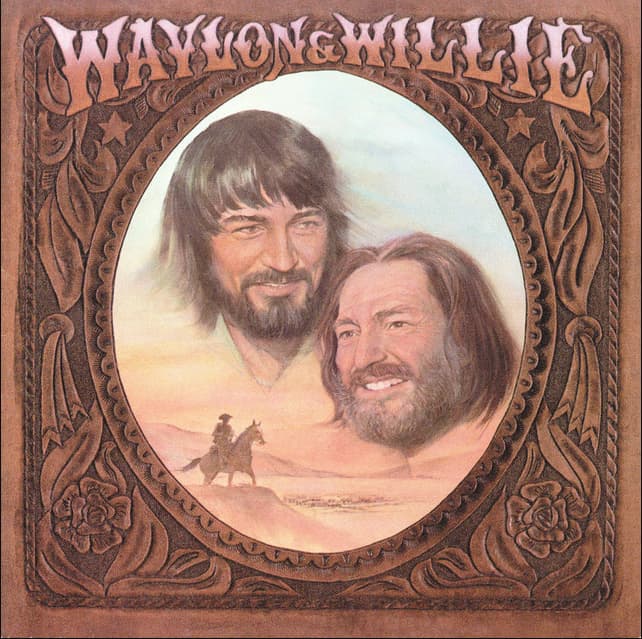
A timeless warning of a song for a parent, a warning of the road’s lonely call
The Lone Star Anthem: A Ride into the Heart of Outlaw Country
The 1970s was a decade that saw a seismic shift in country music, a rebellion against the polished, pop-friendly sounds emanating from Nashville. This movement, known as Outlaw Country, was a raw, unfiltered expression of honky-tonk grit, fueled by artists who lived the lives they sang about. At the forefront of this revolution were two of its most iconic figures: Waylon Jennings and Willie Nelson. Their 1978 collaboration, “Mammas Don’t Let Your Babies Grow up to Be Cowboys,” stands as a towering monument to this era, a song that’s as much a philosophical statement as it is a musical one.
Released on their album ‘Waylon & Willie,’ the song’s success was immediate and profound. It wasn’t just a hit; it was an anthem. The single soared to the top, hitting number 1 on the Billboard Hot Country Singles chart and even crossing over into the pop charts, a testament to its universal appeal. It was a radio staple, a song that seemed to be playing everywhere, from dusty truck stops to suburban kitchens, carrying its melancholic wisdom on the airwaves. For those of us who came of age during that time, hearing its opening notes—the lonesome guitar riff and the rich, weathered voices of Jennings and Nelson—is like stepping back in time.
The story behind the song is as compelling as its melody. While Jennings and Nelson made it their own, it was actually written by another pair of country music legends, Ed Bruce and his wife, Patsy. Bruce himself had a version that was a minor hit in 1976, but it was the synergy of Jennings’s brooding baritone and Nelson’s distinctive, laid-back phrasing that elevated the song to its legendary status. Jennings’s voice was a steel-laced growl, full of world-weariness and hard-won wisdom, while Nelson’s was a gentle, almost tender plea. Together, they embodied the two sides of the cowboy’s life: the stoic toughness and the underlying heartache.
The meaning of the song is etched in its title. It’s a poignant warning, a parent’s lament for the inevitable struggles their child will face if they choose a life of a nomadic cowboy. But the cowboy here isn’t just a literal figure; he’s a metaphor for any dreamer, any free spirit drawn to a life on the road. The song speaks to the loneliness and rootlessness that come with such a path. “They’re always alone, even with someone they love,” the lyrics confess, capturing the emotional distance that so often accompanies a life lived in constant motion. It’s a song about the trade-offs we make in life—the freedom we gain at the cost of stability, the open road we choose over a warm hearth.
For many of us who remember this song from our youth, it carries a deep sense of nostalgia. It evokes memories of long car rides, of AM radio crackle, and of a time when music felt more honest, more grounded in the human experience. It wasn’t just a catchy tune; it was a narrative, a piece of Americana that spoke to a timeless yearning for independence and the quiet sorrow that comes with it. “Mammas Don’t Let Your Babies Grow up to Be Cowboys” wasn’t just a song; it was a piece of advice passed down through generations, a gentle reminder that some dreams, while beautiful, come with a heavy price. It’s a song that makes you want to pull on your worn-out boots, but also makes you grateful for a place to call home.